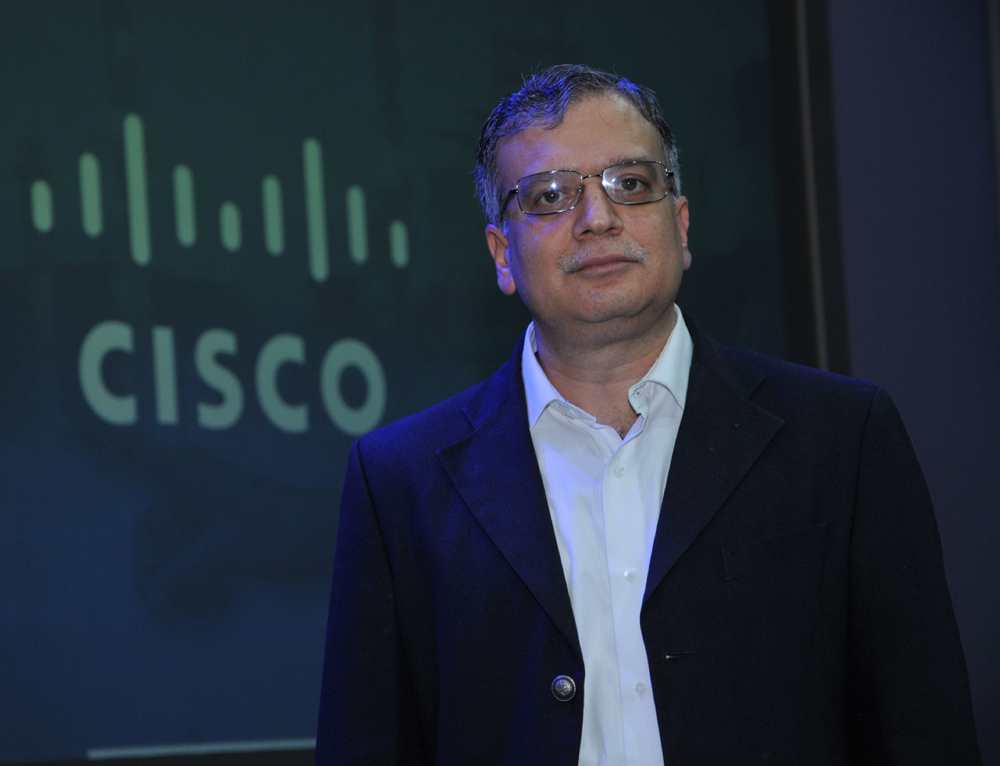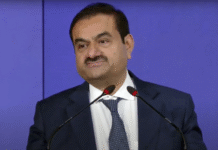By Nishant Arora

Bengaluru– US-based global technology company Cisco, that arrived in India in 1995 and has created thousands of jobs since then, says it is committed to the Make-in-India programme and will continue to be generous in nurturing start-ups.
Reiterating Cisco’s commitment to align with Prime Minister Narendra Modi’s ambitious Digital India and Smart Cities initiatives in a free-wheeling interview to IANS, Amit Phadnis, President, Engineering and India Site Leader, said the time is ripe to begin a manufacturing unit in the country.
“We are very committed to make the manufacturing happen here. The commitment is very firm. Our teams are working towards realising this goal. We have also identified the place but there is still some time to go public on this,” a cheerful Phadnis told IANS at Cisco’s sprawling campus located at Cessna Business Park here.
With 11,000 people working in India, the $143 billion company is reported to set up a manufacturing base in Pune — a city where it recently opened its second Global Delivery Center, the other being operational in Bengaluru. However, the specific details are yet to emerge.
Phadnis, who last week initiated ‘LaunchPad’, an open innovation initiative to help startups, authorised channel partners and developers scale their solutions, address new markets and build digital businesses in India, is confident that the initiative will first digitally empower the few millions in our country before digitising the next three billion globally.
“Till date, we have committed nearly $280 million towards the start-up community in India. If more funding is required, our CEO John Chambers and the top management will be more than open to look into it, but in reality, $280 million is a good beginning to nurture start-ups,” he added.
Via Launchpad, Cisco teams will mentor startups and developers on how to help create digital solutions to enable enterprise customers, service providers and other enablers in the public and private sphere.
“We will create an ecosystem where companies can actually succeed to a point where they actually tap into the funds. The challenge that however remains for a start-up is how to succeed with that kind of money,” Phadnis explained.
Here is how Launchpad will work.
“First of all, We will run a selection process. The parameters are going to be simple like what are the qualities of the founding team, the technologies the team is working on, is it really a rejuvenating start-up?, etc,” Phadnis said.
He believed that great ideas falter because they are not able to scale and solve the larger problems and take to the market. “We are trying to recreate larger construct and we want to solve larger digital solutions. At the end of the day, we want the startup to succeed and we want Cisco and a partner to succeed too, creating a solution which will be useful for society,” Phadnis explained.
“From a start-up’s perspective, if I get into Launchpad, it gets me Cisco technology, mentorship and connects to the partner’s community. Most importantly, it gives me visibility of what are the real solution that can be taken to the market and it gives me the power of the Cisco market engine globally to literally use the wings to fly the globe,” he said.
The initiative will initially focus on manufacturing, retail, transportation, education and the healthcare sector.
To succeed in education, defence or health sectors, multiple technologies from across the domain are required. “We need portfolio of technologies that are going to be important from the innovation point of view. You need to map multiple technologies to one solution and create a go-to-market engine around it,” Phadnis emphasised.
Launchpad is not just limited to Bengaluru or Pune. “We are ready to bring the capabilities that we have bulit in engineering and services pan-India. We are not restricted to any specific city,” Phadnis noted.
Security is the next big thing and for Phadnis, Cisco is ready with a decated security line-up for its customers. “Security is one of the biggest focus in the company at the moment and for us, it is about networks, computer infrastructure, internet of things (IoT), governance, e-governance, cyber security — you name it,” he said.
Last month, Cisco acquired cloud security company CloudLock Inc. for nearly $300 million to provide companies a secured, hacker-free cloud experience. Cisco and French electronics group Thales have also announced a new cybersecurity partnership to develop cyber detection and counter-attack solutions.
“We are taking a holistic view of what does it take to secure an entire infrastructure, whether networking or non-networking, at Cisco,” Phadnis said. (IANS)






